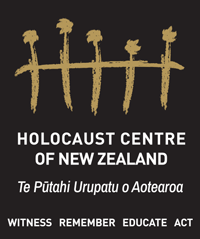|
Marc Daalder
Since the United States government began enforcing a policy that resulted in the separation of families of undocumented immigrants at the US-Mexico border, commentators around the world have referenced the Holocaust in denouncing these acts. Of course, this isn’t the first human rights issue which has been compared to the Holocaust and it won’t be the last either. In my previous blog posts, I have both insisted on the necessity of using Holocaust scholarship to combat human rights abuses and discussed the dangers of idly referencing the Holocaust. Given this, how should we evaluate these claims? Should we support them because the “Never Again” is a call to action, or oppose them because they minimize the Holocaust? There is no easy or blanket answer to these questions. There often are valid comparisons to be made between, for example, xenophobia and hate in the modern day and that which lead up to the Holocaust. Moreover, while most violations of human rights do not escalate to genocide, it would be untrue to say this never happened. We can learn from the fact that few anticipated the true horror of the Holocaust even as it had already begun. At the same time, if every individual assault or hate crime is comparable to the Holocaust, then doesn’t that minimize the Holocaust? Whether or not the Holocaust was unique in the annals of history is a different academic debate, but it was certainly among the worst genocides ever undertaken – it is not equitable to most violations of human rights. In the end, it is perhaps intent that matters. Comparing the Holocaust to modern-day violations in a nuanced manner allows for those violations to be elevated in the public consciousness. This is a good thing. To say, for example, that a violation “resembles the Holocaust in methodology if not in magnitude,” would be an appropriate use of the comparison. Furthermore, linking today’s violations to specific aspects of the Holocaust should also be encouraged. When it is reported that parents on the US-Mexico border are told their children are being taken for a bath when they are in fact being incarcerated, to not mention the obvious Holocaust parallel is to do a disservice to the victims of both atrocities. I think every comparison must be evaluated on a case-by-case basis, and good intent, nuance, and narrow scope are always preferred. In general, however, I lean towards permitting such comparisons because I believe that those who have studied the Holocaust have the obligation to share the lessons they have learned with the world. These views are the author’s own and do not necessarily reflect the views of the Holocaust Centre of New Zealand.
0 Comments
Leave a Reply. |


